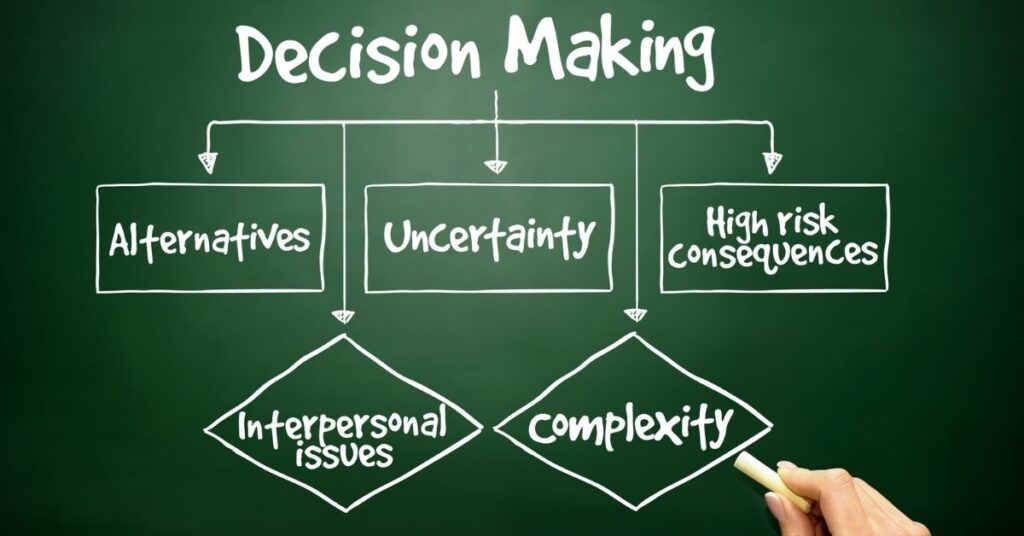When you have a child with autism, you worry about their future. Will they be able to live independently? Can they have a career? What about financial decisions? Autism is a spectrum, so the level of support our children will need when they are adults will vary. For some, legal guardianship may be necessary. For many others though, supported decision-making may be a good alternative for our young adults with autism.
What is supported decision making?
The Center for Public Representation states that supported decision making “allows individuals with disabilities to make choices about their own lives with support from a team of people they choose. Individuals with disabilities choose people they know and trust to be part of a support network to help with decision-making. Supported decision-making is an alternative to guardianship. instead of having a guardian make a decision for the person with the disability, supported decision-making allows the person with the disability to make his or her own decisions.”
How is it different than guardianship? Legal guardianship enables the guardian to make all life decisions for the person under guardianship. They control their money, where they live, where the work, medical decisions, etc.
Supported decision-making provides tools and process for the adult with autism to receive the advice and guidance they need from advisors of their choosing. It can be formal or informal.
How can supported decision-making help your young adult with autism?

A person is an adult at age 18 in the United States. That means they are held accountable for their decisions as any other adult, including financial and medical choices. Those are big responsibilities. That can be really scary for many people but especially for those who have developmental, intellectual and other disabilities. Supported decision-making can help them feel less apprehensive and provide the needed support to make confident choices with advice provided.
It also can give those of us who are parents and caregivers some relief to know that our young adults with autism will seek our advice before making big life decisions.
Reasons why you should consider supported decision-making over guardianship
Supported decision-making allows the ultimate decisions to be made by the person, who seeks advice and guidance from a group of trusted advisors who they choose. They are in control of their own lives, which is what every capable adults prefers – including those with disabilities. Yet, it gives them the help they need when they want and need it.
As our son J has gotten older, I have been thinking more about what type of support he needs for his future due to his autism and ADHD. He will definitely be able to make his own decisions, and I’ve seen a big leap in maturity over the past couple of years. I anticipate that will continue over the next several years. Yet, I do think he will need extra support, especially when he turns 18 and into his early to mid-20s. For him, I think supported decision-making will make a lot of sense. It will help to provide him with advice and recommended direction but allow him to make the final decisions about his own life. It’s something that I think is important for his mental health and sense of self.
Decision-making is a big part of self-determination. What is self-determination? It’s a person’s ability to make decisions and manage their own life. This ability affects a person’s well-being and mental health, and it affects their motivation. The motivation they need to grow in their life and other skills and seek greater knowledge. That affects the quality of their life.
How to put supported decision-making in place for your young adult with autism

So how does supported decision-making differ than being a sounding board for any adult child about big decisions they must make in their lives? A big difference is that supported decision-making can include some specific tools and process that can be used.
Supported decision-making can consist of:
- Supported decision-making agreement – Many states offer templates for these agreements. To view a model form, see this resource from the National Resource Center for Supported Decision-Making.
- Health Care Proxy – This gives a parent or caregiver the ability to help facilitate health care for their young adult with autism.
- Advanced Directive – This gives a person the ability to state formally their decision regarding life support and end-of-life care.
- Power of Attorney (or durable power of attorney) – This gives another person the right to make legal decisions on behalf of the individual under certain circumstances.
You can work with your young adult to determine how they will seek advice for decisions. Will they hold a meeting with advisors on a regular basis and document their decisions? Will it be an informal call to certain advisors about specific topics? How often will this occur?
To establish these documents, you should seek the help of an attorney in your area. If you’d like to find a lawyer who specializes in special needs law, you can search on the Special Needs Alliance website.
Have you put supported decision-making in place for your young adult with autism? If so, what has been your experience? What advice would you give other parents and caregivers? Leave a comment so that we can share and encourage one another on this journey!







